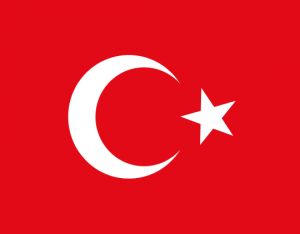Home > blog > International Transactions > How African businesses can pay overseas suppliers with easepay overseas suppliers
How African businesses can pay overseas suppliers with easepay overseas suppliers
anja

Clare Shi
Author
Key takeaways
If you’re doing research on how to source wholesale from 1688.com, you may have a few questions such as:
If you’re doing research on how to source wholesale from 1688.com, you may have a few questions such as:
If you’re doing research on how to source wholesale from 1688.com, you may have a few questions such as:
African entrepreneurs are increasingly sourcing products globally, managing international suppliers, and building competitive supply chains—yet cross-border payments continue to pose significant challenges. Currency conversion complexities, regulatory hurdles, and processing delays can disrupt cash flow and stifle expansion. However, with modern payment solutions tailored to Africa’s unique needs, businesses can now navigate these obstacles effortlessly—turning global trade from a logistical headache into a strategic advantage.
Common challenges African businesses face
Strict FX regulations
Many African countries enforce stringent foreign exchange controls to manage limited foreign reserves. Businesses often face bureaucratic hurdles when sourcing foreign currency for imports or international payments. In some regions, companies are required to submit specific documentation or approvals through government agencies before accessing foreign exchange, delaying time-sensitive transactions.
Limited access to FX
Across several African markets, foreign currency shortages—especially U.S. dollars, can delay FX allocations. This affects importers’ ability to pay suppliers on time, potentially straining business relationships and operations. To cope, companies often negotiate flexible payment terms or look for alternative funding arrangements to manage cash flow more effectively.
High compliance requirements
Regulatory scrutiny in many African countries requires businesses to use licensed banks or money transfer operators (MTOs) for international payments. Large transactions must often be reported to central monetary authorities, and there is heightened oversight on cross-border transfers to combat fraud and money laundering. This compliance burden can slow down payment processes and increase administrative costs.
Transparency risks with informal channels
In regions where access to formal banking infrastructure is limited, some SMEs rely on unregulated or informal payment methods, including peer-to-peer networks. While convenient, these channels pose risks such as fraud, non-compliance, and lack of recourse in the event of disputes. Businesses are encouraged to prioritize regulated platforms to ensure safety and regulatory alignment.
To navigate Africa’s tight FX regulations and currency challenges, businesses must explore payment methods that are not only efficient and cost-effective but also compliant with local and international standards.
WorldFirst simplifies global payments for African businesses
In a payment landscape filled with options, WorldFirst stands out as a trusted partner for African businesses navigating cross-border trade. Here’s why:
1. Seamless global supplier payments
WorldFirst allows African entrepreneurs and importers to pay overseas suppliers quickly and in their preferred currency—whether it’s USD, EUR, GBP, or CNH—without the hassle of complex banking procedures. It is also the only authorised cross-border payment partner for 1688.com, giving African businesses exclusive access to factory-direct pricing—even without a Chinese bank account.
2. Multi-currency accounts
With a single multi-currency account, businesses in Africa can receive funds in 20+ currencies, hold, and pay out in over 100+ currencies, making it easier to manage international trade without constant conversions or multiple bank accounts.
3. Competitive FX rates and transparent fees
WorldFirst offers competitive exchange rates and a clear pricing structure, helping African businesses save on each transaction and estimate costs more accurately.
4. Security and compliance
Licensed and regulated, WorldFirst complies with international financial standards, providing African traders with a secure and legitimate way to move money globally, without the risks associated with informal payment channels.
How to get started
1. Sign up for a World Account for free
Visit the WorldFirst website and complete a short registration form to open your World Account. You’ll be asked to provide basic business and identification information.
2. Verify your business
Submit required documents for verification, such as your company registration and a valid ID.
3. Setup local currency accounts
Once approved, you can set up local receiving accounts in major currencies (USD, EUR, GBP, CNY/CNH, etc.). For each local currency account, you will get an account number and bank code, making it easy to receive and send funds like a local.
4. Start making payments
With your account ready, you can convert currencies at competitive rates and make fast, secure payments to your global suppliers—no delays, no hidden fees.
Ready to streamline your global payments? Sign up with WorldFirst today.
Disclaimer: The information contained herein is intended for informational purposes only and does not constitute any advice. Before acting on the information you should consider whether it is appropriate for you, in light of your objectives, financial situation or needs. Whilst the information has been obtained from and is based upon multiple sources we believe to be reliable, we make no representations or warranties regarding the accuracy or completeness of the information. WorldFirst shall not be responsible for any losses or damages arising from your reliance of such information.
Continue reading
Subscribe
The Weekly Dispatch
Get the latest news and event invites. Signup for our weekly update from the worlds of fashion, design, and tech.











































